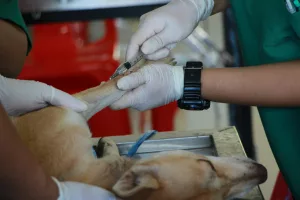Living in a small space doesn’t mean you can’t enjoy the companionship of a pet, but it does require some thoughtful consideration and planning. While some pets thrive in compact environments, others need more room to roam and explore. Let’s delve into the specifics of various pets and how you can creatively adapt to limited living spaces. Dogs can be the best of friends, offering loyalty and companionship, but they come with their own set of needs. When it comes to larger breeds or those with high energy levels, you might find that a small apartment can present challenges. Take a Labrador Retriever, for instance—these dogs are known for their playful and active nature. In a limited space, they might not get the chance to burn off their energy, leading to restlessness or destructive behavior. If you’re set on having a larger dog, consider regular trips to a local dog park or arranging playdates with other dogs. This way, your furry friend can enjoy the exercise and social interaction they need. Cats are generally more adaptable to apartment living than dogs, but not all breeds are created equal. While a Persian cat might spend its days lounging around, a Bengal is more likely to need extra space to satisfy its curiosity and playful nature. Installing cat shelves and window perches can create an engaging environment. They’re not just happy with a litter box and a cozy bed; think of vertical spaces as their personal playground. These additions can also save your furniture by offering alternative climbing and scratching outlets.
Rabbits are often seen as low-maintenance pets, but they require substantial space to hop around and exercise. Consider the needs of a Dutch Rabbit, which is quite active and sociable. A large, enclosed play area filled with cardboard tunnels and hiding spots can keep them entertained and fit. Additionally, enriching their environment with chew toys and interactive elements can prevent boredom and promote their well-being. Rabbits also enjoy human interaction, so regular playtime outside their enclosure is a must.
Birds, especially larger species like macaws or cockatoos, demand significant space not just for their cages but also for flying. A macaw’s wingspan can reach up to 40 inches, necessitating a cage that allows room for movement. If you’re an apartment dweller, you might consider smaller bird species like budgies or canaries, which adapt more easily to confined spaces. Regardless of size, providing a stimulating environment with perches, swings, and toys is crucial. Regular out-of-cage time is equally important, allowing your feathered friend to stretch its wings and explore safely.
Guinea pigs are sociable creatures that thrive in pairs or groups, requiring a spacious, multi-level cage to satisfy their need for exploration. A guinea pig might not seem like a demanding pet, but their social nature and curiosity mean they need plenty of room to roam. Consider a C&C cage, which is customizable and offers ample space. Adding tunnels and hideouts can help mimic their natural habitat, keeping them mentally engaged. Regular interaction and handling are also important for their social development.
Ferrets are notorious for their curious and energetic personalities, making them a handful in small spaces. Imagine a ferret exploring every nook and cranny of your apartment—it’s important to ferret-proof your home to prevent accidents. Create a designated ferret play area filled with tunnels, climbing structures, and toys to satisfy their endless curiosity. Regular supervised out-of-cage time is crucial to prevent boredom and ensure their physical and mental health.
Hamsters may be small, but their space requirements are not to be underestimated. A Syrian hamster, for instance, needs a sizable cage with various tunnels and wheels to satisfy its need for exploration and exercise. A common mistake is underestimating the cage size, leading to a cramped environment that can affect their health and happiness. Ensure the cage has plenty of bedding for burrowing and hiding spots to create a secure and stimulating environment. Regular cage cleaning and interaction are key to maintaining a healthy hamster.
Reptiles like snakes or iguanas often come with specialized space requirements. An iguana, for example, can grow quite large and will need a substantial enclosure that accommodates its size. The enclosure should mimic their natural habitat with appropriate heating, lighting, and humidity levels. This setup not only supports their physical health but also satisfies their behavioral needs. Researching the specific needs of your chosen reptile species is crucial before making a commitment.
Chinchillas are delightful pets known for their soft fur and active nature. They require a spacious, multi-level cage to climb and exercise. A chinchilla might seem like a good fit for an apartment, but their need for space and activity level means you’ll need to invest in a large cage filled with platforms and chew toys. Regular dust baths are also necessary for their grooming. Offering a variety of toys and interaction can help prevent boredom and promote a happy, healthy chinchilla.
Miniature pigs, despite their name, are not as small as one might think and require substantial space for their physical and social needs. These intelligent animals thrive with outdoor access where they can root and explore. In an apartment, consider setting up a small outdoor area or balcony where your pig can enjoy the fresh air. Regular outings to parks or pig-friendly areas can provide the stimulation they need. Keep in mind that pigs are social animals and benefit from interaction with other pigs or animals.
Hedgehogs are charming creatures that require a well-thought-out enclosure to meet their exploratory and burrowing needs. A spacious cage with an exercise wheel, hiding spots, and places to burrow is essential. Hedgehogs are nocturnal, so consider their activity patterns when setting up their environment. Regular interaction and handling are important for socialization, but be patient, as hedgehogs can be shy.
Large fish tanks can transform a room with their beauty but come with space and maintenance requirements that shouldn’t be overlooked. A 50-gallon tank, for instance, not only takes up floor space but also requires a sturdy stand and regular maintenance. Consider the weight of the tank and ensure your floors can support it. Proper filtration, water changes, and a well-thought-out aquascape are essential for the health of your aquatic life.
Large rodents, such as prairie dogs or degus, need spacious enclosures that allow for natural behaviors like burrowing and climbing. A prairie dog, for example, thrives in an environment that mimics its natural habitat with plenty of digging opportunities. When space is limited, focus on vertical space and provide a multi-level cage. Enrichment through toys and social interaction with either humans or other rodents is crucial for their well-being.
Sugar gliders are social and active animals that require a large cage with plenty of room for climbing and gliding. These nocturnal creatures benefit from a setup that includes branches, ropes, and toys to satisfy their need for exploration. Regular out-of-cage time is critical for exercise and social interaction, and they often do best in pairs or small groups to prevent loneliness.
When considering a pet in a small living space, it’s essential to assess your available space and lifestyle to ensure you can meet your pet’s needs. Whether it’s providing extra playtime for a high-energy dog or designing a multi-level habitat for a chinchilla, creative solutions can help you and your pet thrive in limited quarters. Remember, the goal is to create a harmonious environment where both you and your pet can enjoy each other’s company comfortably.



